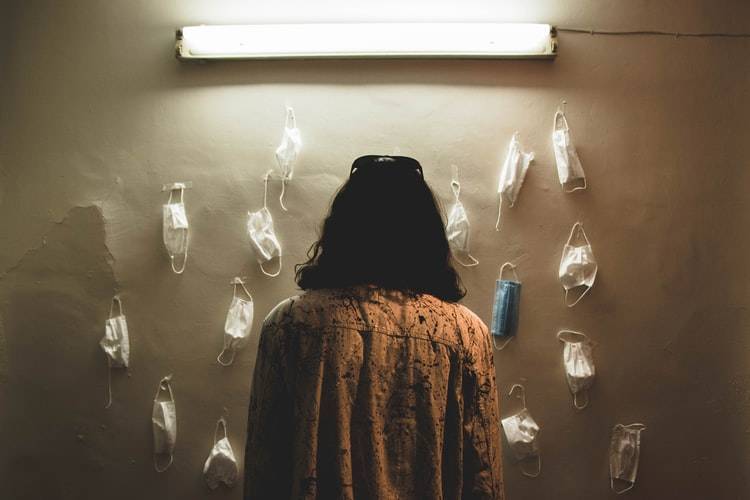The COVID-19 viral disease emerged in late 2019, but there are indications that full recovery for some patients may take a long time. The time required for recovery depends primarily on the severity of the infection. Some patients recover quickly, while the illness may leave lasting issues for others. Factors such as age, gender, and any other health problems that the patient has can increase the risk of COVID-19 infection. The more invasive the treatment a patient receives and the longer they receive it, the longer the recovery time will be.
### What If Symptoms Are Mild?
Most individuals infected with the disease experience basic symptoms such as cough and fever, but they may also feel body aches, fatigue, sore throat, and headache. The cough initially is dry and may eventually produce mucus in some patients, containing dead lung cells killed by the virus. These symptoms are treated with bed rest, plenty of fluids, and pain relievers like paracetamol. Patients with mild symptoms can recover in a short period. Fever typically resolves within less than a week, although the cough may linger for a longer time. An analysis by the World Health Organization based on data from China indicates that the average recovery time is about two weeks.
### What If Symptoms Are More Severe?
Symptoms of the disease may become more severe for some individuals seven to ten days after infection. This transition may occur suddenly, with difficulty breathing and lung inflammation. This is due to the body’s immune system trying to fight back against the virus, causing collateral damage in the body. Some patients may require hospitalization and oxygen support. Dr. Sarah Jarvis notes, "Breathlessness may take a long time to improve... as the body recovers from the infection and inflammation caused by the virus." She adds that complete recovery may take between two to eight weeks, with fatigue persisting.
### What If You Need Intensive Care?
The World Health Organization estimates that one in twenty patients will need intensive care, which may involve sedation and placing the patient on a ventilator. Recovery from the effects of being in intensive care takes time, regardless of the nature of the illness, as patients are often transferred back to a regular hospital ward for a period before returning home. Dr. Alison Pitard, an intensive care physician, states that a stay in intensive care can leave lasting effects, requiring 12 to 18 months for recovery. Prolonged time in a hospital bed leads to muscle wasting, and patients will feel weakness and frailty. Muscles may need time to regain strength, and some patients may require physical therapy to regain the ability to walk. Patients may experience delirium due to the stresses put on the body in intensive care, and may face other psychological challenges. Paul Toose, a psychiatrist in intensive care, remarks, "There seems to be another aspect to this disease—the stress caused by the virus is certainly a significant contributing factor." Reports from China and Italy indicate that patients struggle with general weakness throughout the day, shortness of breath with any exertion, persistent cough, irregular breathing, and the need for long sleep hours. Patients may take a long time to fully recover, stretching over months, but it is difficult to generalize. Some patients spend a relatively short duration in intensive care, while others may require ventilator support for weeks.
### Does the Coronavirus Leave Long-Term Effects?
It is not yet fully understood, as long-term data is lacking, but we can observe other symptoms. Patients whose immune systems are stressed may suffer damage to the lungs, known as Acute Respiratory Distress Syndrome (ARDS). Dr. Toose mentions that there are reports indicating that patients could face psychological and physical difficulties even five years later. Dr. James Gill, a physician and lecturer at Warwick Medical School, emphasizes the need for psychological help for recovery. He states, "You face breathing difficulties, and the doctor tells you: we need to put you on a ventilator and sedate you—do you want to say goodbye to your family? The suffering from post-traumatic symptoms in these cases is not surprising. It will leave psychological symptoms that last a long time." There is potential for even mild symptoms to cause long-term issues, such as fatigue.
### How Many Have Recovered?
Accurate numbers are hard to come by. Data from Johns Hopkins University as of April 15 indicates that 500,000 out of two million patients have recovered. However, different countries use varied methods to record data, and some do not track the number of recoveries, while patients with mild symptoms may not be counted.
### Can I Get Infected Again?
There has been much debate on this topic, but not much evidence exists regarding the immunity that a patient gains. If a patient overcomes the virus, their body likely gains immunity. Reports of individuals getting reinfected may stem from inaccuracies in testing that indicated they were virus-free. The issue of immunity is crucial for understanding whether patients are at risk of reinfection and the effectiveness of any forthcoming vaccine.




